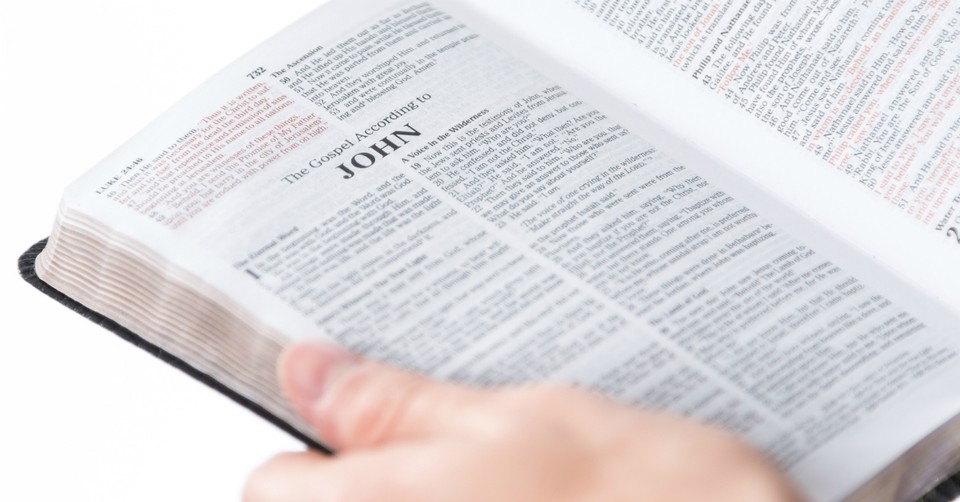What Is the Significance of the Jesus '7 'I Am' Statements in John?

The "I Am" statements of Jesus are a series of declarations made by Jesus in the Gospel of John, which underscore His divine identity and mission. Each of these statements serves not only as a reflection of His nature but also as a way of revealing how He fulfills the spiritual needs of humanity.
God had centuries earlier revealed Himself to Moses with the decisive statement, “I AM” (Exodus 3:14). Throughout the Old Testament, others added to His name “I AM” – translated Yahweh or Jehovah or LORD – by giving Him names that clarified His character, based upon His provision and His miracles. Scripture declares God’s names as Jehovah-Jireh (the Lord, My Provider), Jehovah Rapha (the Lord Heals), Jehovah Nissi (the Lord, My Banner), Jehovah Shalom (the Lord, Our Peace), Jehovah Raah (the Lord, My Shepherd), and more.
Then, centuries later, Jesus used the same name (I AM) in the Gospel of John to describe Himself when He said to the Samaritan woman “I…am He” (John 4:26), when he told His frightened disciples as He walked on the surface of the waters toward their boat in a storm “It is I” (John 6:20), and when He reaffirmed to His followers, “I am He” (John 13:19).
God further defined who He was in the Book of John through Jesus’s seven “I am” statements.
What are Jesus' “I Am” Statements?
Jesus made these seven resounding statements throughout the Gospel of John:
1. “I am the bread of life. He who comes to Me shall never hunger, and he who believes in Me shall never thirst” (John 6:35). Jesus also reiterated this statement in John 6:41, 48, and 51.
2. “I am the light of the world. He who follows Me shall not walk in darkness, but have the light of life” (John 8:12).
3. “I am the door of the sheep. All who ever came before Me are thieves and robbers, but the sheep did not hear them. I am the door. If anyone enters by me, he will be saved and will go in and out and find pasture” (John 10:7-9).
4. “I am the good shepherd. The good shepherd gives His life for the sheep…I am the good shepherd; and I know my sheep, and am known by My own.” (John 10:11, 14).
5. “I am the resurrection and the life. He who believes in Me, though he may die, he shall live” (John 11:25).
6. “ I am the way, the truth, and the life. No one comes to the Father except through Me” (John 14:6).
7. “I am the true vine and My Father is the vinedresser… I am the vine, you are the branches. He who abides in Me, and I in him, bears much fruit; for without Me you can do nothing” (John 15:1-5).
What Is the Significance of Each “I Am” Statement in the Bible?
Jesus’ “I am” statements were particularly significant to the Jewish listeners in the context of when or where He said them. He continually pointed their eyes toward Himself as God in light of the Old Testament Scriptures that prophesied His coming.
“I am the bread of life.”
Jesus said this shortly after He had fed the five thousand, and the people wanted more free food. But Jesus didn’t want to keep filling their stomachs. He wanted them to see that physical food only satisfied hunger temporarily, but He was the One who could satisfy them spiritually. He was saying He is the bread that provides life.
Manna satisfied the physical needs of the Israelites in the wilderness, but only for a while. Christ satisfies our spiritual needs forever. Those who believe in Jesus have life. The manna in the wilderness satisfied temporary hunger, and those who ate it eventually died. Jesus provides the bread of life that leads to life everlasting.
“I am the light of the world.”
Jesus made this statement during the Feast of Tabernacles. At this feast, a huge candelabra was lit in the women’s court of the temple. It reminded the Israelites of the pillar of fire that guided their ancestors during the wilderness wanderings. Jesus made this statement just after forgiving, rather than condemning, a woman caught in adultery whom the Pharisees had brought before Jesus in the middle of His teaching.
Jesus was letting them know that in a world darkened by sin, He is holy (His light contrasts the darkness) and He offers the light and guidance to those stumbling in sin. The people knew the Old Testament Scripture “For the Lord God is a sun and shield; the Lord will give grace and glory…” (Psalm 84:11). In that instance, Jesus was epitomizing the character of God as a sun (which provides light), a shield (which protects), and grace (which forgives) for the glory of God.
“I am the door of the sheep.”
This statement of Jesus' was made during a discourse with Israel’s religious readers in which Jesus in so many words declared them to be unfit shepherds of the nation. According to the Nelson Study Bible, “Shepherds guided their flocks into stone enclosures each night to protect them. These structures had no doors. The shepherd would sit or lie in the opening to prevent predators from attacking. Thus Jesus was describing His care and constant devotion to those who are His.” This statement also reinforces what He said in John 14:6 about being the only way to come to the Father. The only way to get into God’s “sheepfold” or “family” or “dwelling” is to go through Jesus – the door or entryway.
“I am the good shepherd.”
With this statement, Jesus described His sacrificial love for His people. He was letting the Israelites know that, unlike a hired man who will run and leave a flock unprotected in order to save his own life when the wolf threatens the sheep, He will not abandon His sheep, but will keep watch over His people. In John 10:15-16, Jesus said “I lay down My life for the sheep. And other sheep I have which are not of this fold; them also I must bring, and they will hear My voice, and there will be one flock and one shepherd.” This was a prophetic utterance about His coming sacrificial death to save both the Jews and Gentiles who would believe in His name. In Psalm 23, David referred to the Lord God as his shepherd, and in this passage, Jesus refers to Himself as the ultimate Good Shepherd who was about to give His life for His sheep and fulfill His Father’s plan of salvation for all people.
“I am the resurrection and the life.”
Jesus spoke this crowning statement of hope to His grieving friend, Martha, after her brother, Lazarus, had died. In the next verse He clarified His statement by saying, “And whoever lives and believes in Me shall never die. Do you believe this?” (John 11:26). Death brought a sense of despair, hopelessness, and finality until Jesus spoke those glorious words, and then demonstrated them by bringing His dead friend back to life. Shortly afterward, Jesus showed the world that He had conquered the grave when He, Himself, rose to life three days after His death for the sins of all who would believe. According to 1 Corinthians 15:55, death no longer holds its sting because Jesus has overcome the grave. All who are in Christ will live forever.
“I am the way, the truth, and the life.”
When the disciples were confused about Jesus’s statements about heaven, Thomas asked what all of them must have been thinking: “Lord, we do not know where You are going, and how can we know the way?” Jesus said to him, “I am the way, the truth, and the life. No one comes to the Father except through Me” (John 14:5-6). Jesus was reiterating that all roads do not lead to heaven. There are not many paths or religions to God. Jesus is the only way to forgiveness, the only source for truth and knowledge about God, and the only route to eternal life. Jesus offers to spiritually dead people the very life of God. And there are no other options. This statement was significant to those of His day who were trying to gain access to God’s favor through the Law and their good works. And it is significant to us today because we are surrounded by many beliefs and religions claiming access to God and a way to earn God’s favor and eternal life, apart from Jesus alone.
“I am the true vine.”
Jesus said this to His followers in the Upper Room on the night of His arrest and impending death. The Old Testament contains many references to Israel as God’s vine (Psalm 80:8; Isaiah 5:1-7; Ezekiel 15; Hosea 10:1). But because of the nation’s unfruitfulness, Jesus came to fulfill God’s plan. By abiding in or dwelling with or attaching ourselves to Christ, we enable His life to flow in and through us. Then we cannot help but bear fruit that will honor the Father. In this metaphor, He is the gardener. In Him, and in His nurturing, tending, and pruning, you and I can grow to our potential and bear much fruit. Jesus was saying “Stick close to Me and you will be able to accomplish much for My Father’s glory.”
Why Are Jesus' Statements Important?
Jesus wasn’t just exercising positive self-talk when He made these bold statements. He was letting the first-century Jews, familiar with God’s definition of Himself, know that He truly was God incarnate, the Messiah they were waiting for, the Most High God in the flesh. If anyone else had made these statements, it would have been blasphemy (That is what Jesus was accused of by the Jewish leaders, who then arranged to have Him crucified for such “blasphemy.” Yet that plot was ultimately ordained by God to fulfill the prophecy that Jesus would be crucified for the sins of all who would believe in His name).
Jesus fulfilled and affirmed numerous Old Testament prophesies about Himself through these statements. It’s also important to consider that He knew who He was, and He wanted us to clearly know, too. He can’t be minimized to merely our “ticket to heaven” but must be seen as our daily sustenance, our direction, our protector, our sacrificial Savior, our victory over death, our access to the Father and eternal life, and our vitality and strength.
Do you know Jesus as not just a great teacher, not just a miracle worker, not just your Savior, but as the Great I Am in the flesh who became your sustenance, light, hope, salvation, and strength? Jesus said, “And you shall know the truth, and the truth shall make you free” (John 8:32). Experience the truth and freedom of knowing who Jesus really is, and its significance to you personally and to a hurting world that needs Him.
For more on getting to know the real Jesus, see Cindi’s book, Letting God Meet Your Emotional Needs.
Photo Credit: ©GettyImages/Aiden Franklin

Originally published March 16, 2021.





